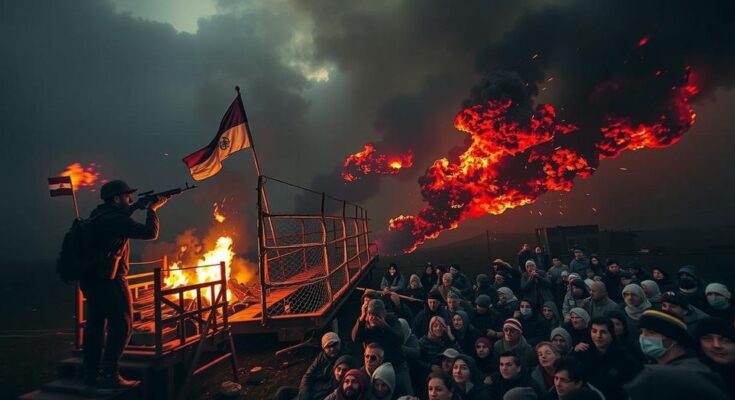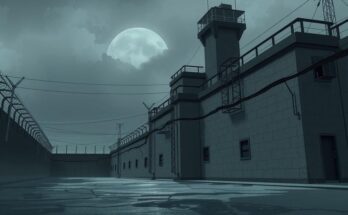The Syrian civil war has intensified as opposition forces seize territory in Aleppo amid weakened key players like Russia, Iran, and Turkey. The conflict, which began in 2011, has seen significant shifts with various factions vying for control amidst foreign military presences. Recent developments highlight the precarious balance of power within Syria, raising critical implications for future stability in the region.
The Syrian civil war has recently regained international attention following a bold offensive by opposition forces who have taken significant territory in Aleppo and adjoining regions. This resurgence of conflict arises with key players such as Iran, Russia, and Turkey either distracted or weakened, leading to intense clashes reminiscent of the violence seen prior to the 2020 ceasefire. Despite attempts by pro-government forces to regain control through numerous airstrikes, insurgent groups appear to be shifting the momentum on the ground.
Since its inception in 2011 amidst protests against President Bashar Assad, the war in Syria has involved multiple foreign powers. The Syrian government, bolstered by Russian air support and Iranian military aid, has historically held the majority of strategic locations. However, the recent loss of Aleppo, which Assad’s government regained in 2016, presents a substantial setback.
Iran’s influence remains significant, with military advisors and proxy forces playing pivotal roles despite the recent strains on their resources from regional conflicts. Concurrently, Russian military efforts have shifted towards the war in Ukraine, diluting their focus on Syrian affairs. Furthermore, insurgents primarily led by Hayat Tahrir al-Sham, previously affiliated with al-Qaida, have expanded their control over northwestern Syria. This group’s evolution, including a strategic pivot to a more moderate stance under new leadership, underscores a shifting dynamic in opposition forces.
Turkey supports various factions within Syria, complicating the geopolitical landscape. The Turkish-backed Syrian National Army has engaged in battles against U.S.-backed forces, including the Kurdish-led Syrian Democratic Forces (SDF). Approximately 900 American soldiers are stationed in Syria to combat any resurgence of ISIS, further entangling foreign interests in this protracted conflict. The SDF remains vital in the northeast, holding vital areas, including parts of Aleppo, even as their future movements could be influenced by insurgent actions.
In essence, the recent developments mark a critical juncture in the Syrian civil war, emphasizing the complex interplay among domestic factions and international players. This situation demands vigilant international observation, particularly as various nations reassess their roles in light of the changing tides of conflict and control within Syrian territories.
The Syrian civil war began in 2011 as a response to protests against President Bashar Assad’s regime, blossoming into a complicated conflict involving various internal and external actors. Throughout the years, Syria has seen the involvement of multiple foreign powers, including the United States, Russia, Iran, and Turkey, each supporting opposing factions. The dynamics of the conflict have shifted over time due to various ceasefires and military campaigns, with Aleppo often serving as a critical battleground. The recent escalation raises questions about the future control of key territories and illuminates the strategic interests of the involved nations.
In conclusion, the Syrian civil war continues to evolve, marked by significant territorial exchanges and shifts among key players. Insurgent groups are leveraging the momentary distractions of foreign powers to gain ground, notably in Aleppo. The intricate web of alliances and rivalries underscores a protracted struggle for dominance that remains unresolved. The unfolding situation necessitates close scrutiny from the international community, considering the potential consequences of accelerated conflict in the region.
Original Source: apnews.com




